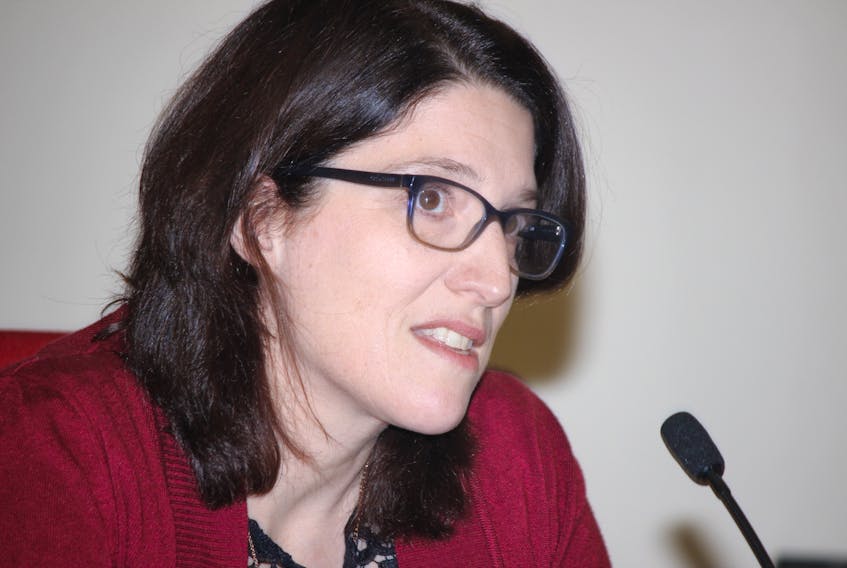ST. JOHN'S, N.L. — After a spring and summer of exasperation with Health Minister Dr. John Haggie, doctors in the province appear to be taking a softer tone leading into contract talks next week.
However, Newfoundland and Labrador Medical Association (NLMA) president Dr. Lynette Powell says her optimism comes primarily in spite of the minister rather than because of him.
“Dr. Haggie still has a whole department around him who’ve told us that they’re willing to work with us,” Powell told reporters Wednesday morning. “We can only work with what we’re told, and we’re going into this with a very positive attitude.”
Doctors have been without a contract since 2017, although the minister has said the pandemic played a part in stalling them this year.
Much of the wrangling six months ago was about a lack of communication over the resumption of health services after the pandemic lockdown, but Powell said the No. 1 issue for doctors was and still is physician recruitment.
She said in her travels across the province, she was disappointed to hear from young medical students who said they encountered few to no enticements to keep them at home.
“Most of these students have never even been approached by our health authorities or our government to say, are you staying in Newfoundland,” she said. “I heard stories from people who would say that they would go to recruitment fairs and the table for Newfoundland and Labrador would be empty.”
She said Memorial University’s med students are some of the best anywhere, and they’re being snatched up by better offers beyond the province’s borders.
“Those who do stay face high volumes, unsustainable on-call obligations and inadequate support to provide relief — leaving many burnt out and looking for opportunities elsewhere,” she said.
“As a result, the recruitment of doctors continues to be reactive. Hiring is driven by crisis and filling critical, immediate gaps rather than forward planning."
Harbour Breton, she said, is a place that has only one doctor at the moment.
“It sure is hard to be the person that’s there, because you can never leave, and you can never really turn your pager off.”
“Those who do stay face high volumes, unsustainable on-call obligations and inadequate support to provide relief — leaving many burnt out and looking for opportunities elsewhere.”
Last year, she said, the NLMA commissioned a family physician forecast for the province. It revealed an immediate need for 60 additional full-time family doctors in 2020, and an average of 20 more per year over the next nine years to meet the medical needs of the population.
“We are nowhere close to meeting this need,” she said.
Payment model
Another bargaining issue that’s guaranteed to arise is the way doctors are paid. While the amount of compensation is always a sticking point, Powell said the main issue is that the existing fee-for-service model lags behind much of the rest of the country.
She says students here are being trained to work on a teams-based model, but the fee system is still transactional — in other words, doctors are only paid each time they sit in front of a patient.
“Students don’t want to do that. They don’t want to work like that.”
The alternative would be a mixed system that provides compensation based on patient load, so that some of the resources can more readily go toward a team-based approach.
In the end, Powell said, the NLMA can only point out the problems, and it’s the government’s responsibility to fix them.
“We are aware of our fiscal realities and we know the government will be heavily focused on managing costs. We understand and support a sustainable health system,” she said.
“However, a sustainable health system must still attract and retain the right number of doctors. We cannot afford to keep training our doctors to be hired in other provinces. We need them here to fill the worsening gaps.”
Peter Jackson is a Local Journalism Initiative reporter covering health for The Telegram.









